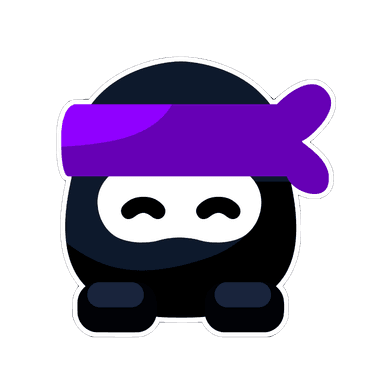Introduction
In many schools, classroom observation has traditionally been seen as evaluative — something done to teachers rather than with them. But in IB education, where reflection is foundational, observation should be a shared inquiry into learning. Rethinking classroom observation through a reflective lens shifts the focus from judgment to growth, transforming it into a professional dialogue about teaching and learning.
When observation becomes reflective, teachers feel empowered to explore questions, take risks, and refine their practice. It becomes a tool for professional inquiry — aligned with the IB philosophy of learning through reflection, collaboration, and continuous improvement.
Quick Start Checklist
To make classroom observation reflective and growth-oriented:
- Clarify purpose: focus on inquiry and learning, not evaluation.
- Use shared reflection questions before and after the lesson.
- Encourage peer observation and coaching.
- Document reflections as evidence of professional learning.
- Celebrate insights and next steps collaboratively.
These principles transform observation from performance to partnership.
Why Reflection Should Drive Observation
The IB’s emphasis on reflection applies as much to teachers as to students. Reflective observation helps teachers:
- Analyze learning processes instead of just outcomes.
- Align classroom practice with IB standards and Learner Profile attributes.
- Recognize strengths and areas for improvement in real time.
- Strengthen collaboration and mutual trust within teams.
Observation becomes a conversation — an inquiry into how learning happens, not an audit of what happened.
Moving from Evaluation to Inquiry
Traditional observation models often focus on compliance: lesson pacing, student behavior, and visible strategies. Reflective observation, however, begins with questions, not checklists.
Examples include:
- How does this lesson promote inquiry and student agency?
- What evidence of reflection or conceptual understanding is visible?
- How do students engage with global contexts or the Learner Profile?
- What might we refine to deepen conceptual learning?
These questions turn observation into professional dialogue and discovery.
The Power of Pre-Observation Reflection
The process should begin before the lesson. A short reflective conversation helps focus the observation purpose. Teachers can share:
- Learning goals and conceptual aims.
- Strategies being tested or refined.
- Areas where they seek feedback or reflection.
This pre-observation stage establishes trust and positions the observer as a partner in inquiry rather than an evaluator.
Observing Through the Lens of the IB Learner Profile
Reflective observation is most meaningful when connected to the IB Learner Profile — for both students and teachers. Observers can reflect on how lessons foster traits such as:
- Inquirers: Are students asking and exploring meaningful questions?
- Communicators: How are ideas shared and discussed?
- Risk-takers: Are students encouraged to take intellectual risks?
- Reflective: Do students have space to evaluate their learning?
This alignment ensures observations reinforce IB philosophy at every level.
Conducting the Observation: Inquiry in Action
During observation, the goal is not to critique but to collect evidence of learning and engagement. Observers can note patterns such as:
- How students collaborate and inquire.
- How feedback loops promote reflection.
- How the teacher scaffolds conceptual understanding.
- How classroom culture supports well-being and curiosity.
Such observations provide rich data for reflective dialogue afterward.
Post-Observation Reflection and Dialogue
The debrief is where reflection becomes transformative. Instead of evaluative feedback, focus on shared reflection questions:
- What surprised you during the lesson?
- How did the strategies align with your intentions?
- What evidence of learning stood out to you?
- What might you explore next?
This structure models the IB cycle of inquiry, action, and reflection in professional practice.
Encouraging Peer Observation and Collaborative Learning
Peer observation promotes professional trust and collective reflection. IB schools can create systems where teachers observe one another to explore shared questions, such as:
- How can we make thinking more visible?
- How can formative assessment support inquiry?
- How do we integrate Learner Profile attributes daily?
When teachers learn together, observation becomes a form of ongoing professional inquiry.
Using Observation Data Reflectively
Observation notes and reflections can be used as evidence for professional growth rather than evaluation. Coordinators can help teachers:
- Document reflective insights in professional learning portfolios.
- Identify trends across departments for PD planning.
- Use data to celebrate innovation and learning, not just compliance.
This reflective use of evidence supports a culture of trust and growth.
The Role of Coordinators in Reflective Observation
IB Coordinators play a key role in modeling reflective observation. They can:
- Train staff in using inquiry-based observation protocols.
- Ensure feedback conversations remain non-evaluative.
- Facilitate peer reflection groups.
- Incorporate observation insights into whole-school reflection and action plans.
Their leadership ensures that observation serves as a developmental, not administrative, process.
Building a Reflective Observation Culture
To sustain success, schools should:
- Normalize observation as shared learning.
- Allocate time for post-observation reflection meetings.
- Celebrate reflective insights in staff gatherings.
- Integrate findings into PD and curriculum review cycles.
When observation becomes routine, it nurtures a professional culture grounded in curiosity and continuous reflection.
Call to Action
Observation should inspire, not intimidate. By adopting a reflective lens, IB schools can turn observation into a catalyst for professional inquiry, collaboration, and growth.
Learn how RevisionDojo supports IB schools with reflection frameworks that enhance observation, documentation, and professional learning. Visit revisiondojo.com/schools.
Frequently Asked Questions (FAQs)
1. What’s the difference between evaluative and reflective observation?
Evaluative observation measures performance; reflective observation explores learning through dialogue, curiosity, and shared understanding.
2. How does observation connect to IB philosophy?
It mirrors the IB focus on reflection, inquiry, and continuous growth — promoting authentic professional learning aligned with student inquiry.
3. What is the role of feedback in reflective observation?
Feedback becomes collaborative reflection, guiding teachers toward deeper insight rather than prescriptive advice.
4. How can schools make observation less intimidating?
By emphasizing trust, focusing on inquiry, and ensuring observation is part of a supportive professional learning system.
5. How can observation data support school improvement?
Reflection notes and trends inform professional development, curriculum design, and evidence for IB evaluation.


